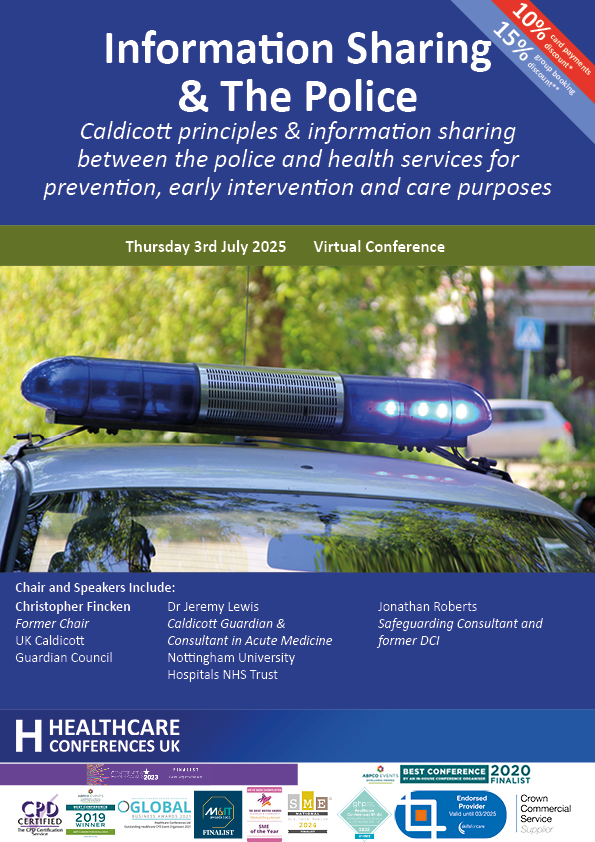Follow the conference on X #CaldicottPolice
This conference focuses on Information sharing between the police and health services for prevention, early intervention and care purposes. The day will look at principles of information sharing and understanding when to disclose and when not to.
The conference will include case studies from proactive information sharing for example in domestic violence cases for early intervention, and also reactive information sharing when an incident has occurred. The day will update delegates on the home office consultation ‘Police requests for third party information’..
There will also be an update on the working with police on missing persons…” Enabling police to access a person’s health and social care information quickly and efficiently can be crucial when trying to trace a missing person.” UKCGC 2022
“It is vitally important that health and social care professionals understand that they have a duty to share confidential information in the best interests of an individual in their care – when they are providing ‘direct care’. Confidential information should be shared within the direct care team if that is expected to result in better or safer care. Most people who use health and social care services assume social workers, doctors, nurses and other professionals will share confidential information among the care team. Sometimes individuals are put at risk when confidential information is not shared…However, even where it is clearly beneficial to share information for direct care, rules about confidentiality and privacy still apply. That means that only those who have a clear ‘need to know’ should have access to the relevant confidential information…The need to share confidential information becomes an absolute imperative in cases involving a threat to the safety of others. An example of this could be the prevention of abuse of a vulnerable elderly person. This may necessitate the sharing of confidential information with the police or other organisations.”
Confidentiality in Health and Social Care NHS England 2024
“Police requests for third party material, which can include education, medical or local authority records are sometimes necessary to further an investigation, but are not always dealt with appropriately.”
Police requests for third party material Home Office
This conference will enable you to:
Network with colleagues who are working to improve information sharing between the police and health/social care services
Learn from outstanding practice in effective information sharing
Reflect on national Caldicott developments, the home office consultation (Police requests for third party information)
Improve the way decisions are made in your service using Caldicott principles
Learn from case studies in Emergency Care, Safeguarding Vulnerable Adults, Mental Health, and Missing Persons
Develop your skills in proactive and reactive information sharing with the police
Understand how you can improve information sharing around domestic violence and safeguarding
Appreciate when a request is reasonable and gain advice on dealing with unsubstantiated police requests
Identify key strategies for supporting people in crisis through information sharing
Ensure you are up to date with the latest legal developments including implications of GDPR in this area
Self assess and reflect on your own practice and police perspectives
Supports CPD professional development and acts as revalidation evidence. This course provides 5 Hrs training for CPD subject to peer group approval for revalidation purposes











